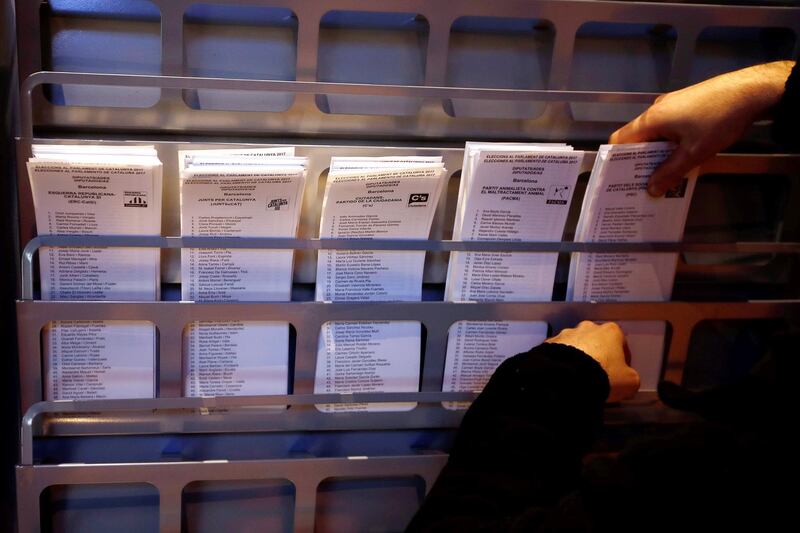Catalans were voting Thursday in a bitterly-contested election set to become a key moment in the region’s push for independence that has divided Spain and damaged its economy.
Seven parties are contesting the election to Catalonia’s regional parliament, which was dissolved by the central government following a declaration of independence in October by its former president Carles Puigdemont. With tensions running high, thousands of police are on duty for the vote.
Latest polling suggests that the pro-unity party Ciudadanos, which opposes independence, is likely to secure most votes but no party on its own is tipped to win an outright majority.
Analysis suggests that three parties all promoting independence for the northeastern region could just manage to secure the 68 seats required to win a majority with the help of an anti-austerity party which not taken a clear line on the independence issue.
That result would be a blow to Spanish prime minister Mariano Rajoy who sacked the previous government and called the elections in an attempt to curb the push for independence by Spain’s wealthiest region.
Splits, however, within the pro-independence movement and the bruising experience of Madrid's clamp down, sending the region's leaders into exile or prison, appear to have dampened the enthusiasm for an immediate rush to independence.
"There will be no solution because any solution will require years and years," said Jordi Alberich, the director of Barcelona-based thinktank Circulo de Economia.
__________
Read more:
[ The town where independence for Catalonia took root ]
[ Separatist leader makes final plea for split with Spain ]
[ Year in review: The stakes are high but the use of referenda is on the rise ]
__________
Mr Puigdemont has been campaigning from Brussels where he is self-imposed exile and faces arrest if he crosses the border back into Spain. His party appears to be running a strong third in the race, according to the latest analysis by El Pais newspaper.
ERC, or the Republican Left, is just ahead of Puigdemont’s party and is set to become the most influential pro-independence voice in any new administration. Its leader Oriol Junqueras is currently in prison.
Mr Junqueras and other senior party leaders have made conciliatory noises about talking with the Madrid government, rather than direct political confrontation.
The independence campaign has been the product of centuries of discord between Catalonia – which has a different language, culture and history – and the rest of Spain.
The region was repressed during the 36-year fascist rule of General Francisco Franco but won a significant degree of autonomy in a 1978 constitution that returned Spain to democracy following the dictator’s death.
Tensions have continued but ongoing economic woes following the global economic crisis and antagonism with Mr Rajoy’s government saw the situation explode in 2017.
An October 1 referendum on the issue, branded illegal by the Spanish government, was disrupted violently by police sparking outrage in Catalonia and adding impetus to the independence cause.






